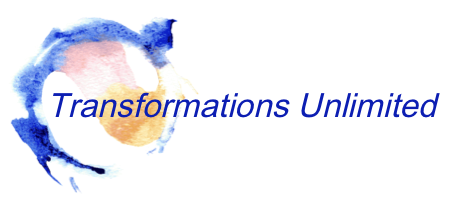CRISIS OF PERCEPTION/OPPORTUNITY FOR TRANSFORMATION
/Like most Americans, along with concerned people from all over the world who are dismayed by the outcome of our election, I am spending this day trying to understand what happened and reflecting on what it means for me and for the world. As a part of that process, I have probably been spending way too much time listening to the news and paying attention to social media, but here is some of what I’m hearing about what happened:
· Both parties chose flawed candidates and Americans were faced with choosing the lesser of two evils
· America was not ready for a female President
· The outcome is the fault of over-zealous coverage of Trump by the media
· This is a part of a global movement against demographic changes and towards authoritarianism
· The election was won by the votes of an uneducated, racist, homophobic, xenophobic and misogynist populace
· This was the last stand of the American white male, or what CNN’s Van Jones called a “whitelash against a changing country”
And so on. What I’m also picking up on is reflections on what the outcome of the election means in people’s lives, including:
· Parents and teachers who are anguishing about what to say to and how to help the children and young people in their lives make sense of the election
· People of color, the LGBTQ community, Muslims, immigrants and others who are fearful about safety and repercussions
· Those who are angry, in despair, frustrated, and depressed about the outcome vowing to either fight back or hunker down for the duration
· Calls to make contributions, volunteer or organize in support of a variety of causes including human rights and the environment
· Reminders to take time in nature, to meditate, or engage in other activities designed to restore inner stability
My own take on what happened and what it means is captured in the title of this piece and is, of course, a reflection of my own point of view. To me, this election is a perfectly understandable, if highly disturbing, manifestation of what has been called a “crisis of perception.” Simply put, that crisis is our inability to shift our view of the world as an unrelated collection of independent parts to one that sees the world as one unified and interconnected whole. It is not necessary to understand how these worldviews evolved or a lot about what they entail to see how our failure to make this shift plays out in the real world. If ever we needed proof of our potential leaders’ inability to understand the complexity and interrelationships among the problems we face as a nation and as a world, that reality has come through loud and clear over the many agonizing months of this year’s political season.
But even more disturbing to me than that is the degree to which evidence of a completely outdated and destructive view of the world has taken center stage in our personal and political discourse. It is easy to see how a fragmented worldview could lead to the fear and anger among some people that growing minority or immigrant populations might be stealing scarce jobs and resources. It is perhaps more difficult for the privileged, including myself, to see that putting those who are weary of being forgotten or disenfranchised into a “basket of deplorables” is based on the same fear of the "other" or losing what we have.
As the title of this piece suggests, the way forward to me is to see this moment as an opportunity for transformation from an outmoded view of the world to one that is more whole and inclusive. This process of shifting worldviews has been described in many ways, but Carol Gilligan’s explanation may be the easiest to understand. Gilligan, a psychologist who has spent her life studying moral development, claimed that, as adults, we all go through common stages of “growing up,” from selfishness (being concerned solely about our own needs; to care (or extending our concern to others that we consider to be “our people”); to universal care (or moving our care from “us” to “all of us” – treating all people fairly); and, finally, to integrated (or, expanding our moral care from all humans to all sentient beings and all life). In my husband, David’s and my 2015 book, The Transformative Workplace, we simply called this a movement from Selfness to Otherness to Wholeness.
The problem, according to integral theorist, Ken Wilbur, is that large proportions of the population everywhere are stuck at Gilligan’s care stage of development. The world today, he says, “is undergoing something of an explosion of identity at this level, with a vast number of people seeing themselves as being a special and good group, and virtually everybody else—or certainly various other select groups— as being totally alien, different, problematic, to be avoided or denied, even being evil. We care enormously for our group; we do not care at all for those other groups; in fact, we’re usually frightened by them and we often loathe them. And social media doesn’t help with this. But worldwide, this is a direct result of arrested development at this essentially low level of Growing Up—and an alarming 60 or 70 percent of the world’s population is today at this ethnocentric or lower level of development.”
While I recognize that adult development is a lifelong process, I don’t personally think that our culture or the planet has the time to wait for sufficient numbers of people to shift their minds to a wholeness perspective. In the meantime, however, I absolutely believe that anyone in search of a better way to live, to get along with others, and to keep the planet an amenable place for all of us can begin to act as if we see the world from a more inclusive perspective. We can take it upon ourselves to join with others in making a conscious commitment to practicing some of the ways of being that people with a universal care or integrated worldview exhibit. Those ways of being include presence, courage, authenticity, truthfulness, forgiveness, compassion, generosity, humility and unity. David and I call that “Practicing Wholeness,” and we’ll have a whole lot more to say about that in the near future.
If you’ve read this far, thank you! It’s over 1000 words long and I am aware that it’s way too long for a blog. Writing it, though, has gotten me through a tough day! I have once again restored my belief in the possibility that we will grow our way into earning back our once cherished reputation as a “beacon of liberty and justice” for the rest of the world. And to all my friends and family who work every day on behalf of life, thank you. Keep on keeping on.
To read more about Ken Wilbur’s work, go to http://integral-life-home.s3.amazonaws.com/Wilber-WakeUpGrowUp-TheEdgeOfTheUnknown.pdf
To learn more about our book, The Transformative Workplace, go to www.transformativeworkplace.com.
If you’re interested in knowing more about Practicing Wholeness, email me at carole@transformunltd.com.

